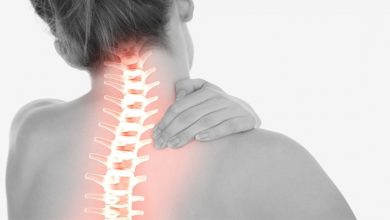Why is the heart inflamed?

The myocardium, also known as the heart muscle among the people, forms a large part of the heart. This muscle, like other skeletal muscles in the body, can become inflamed due to infections.
Bacteria, fungi, autoimmune diseases and pharmacological agents, especially viruses, can cause inflammation of the heart muscle. This condition, which is defined as myocarditis in medicine, is mostly asymptomatic, that is, without symptoms, but in some cases, it can have serious consequences that can lead to heart failure or death.
The incidence of myocarditis, which constitutes approximately 25 percent of heart muscle diseases, cannot be determined clearly in the general population, since the disease is mostly asymptomatic and can heal spontaneously. Myocarditis, which can also be defined as inflammation of the middle layer of the heart wall, causes deterioration in heart muscle cells. Viral infections are often the source of the disease. Therefore, people who are not vaccinated against viral infections, use drugs, have unprotected sexual intercourse and do not comply with personal hygiene rules are in the risk group for myocarditis.
WHAT ARE THE CAUSES OF CARDIOUS INFLAMMATION?
There are several causes of heart muscle inflammation. The most common cause of illness in most Western countries is a virus belonging to the Coxsackie B family. Mumps, influenza, measles, polio viruses can also cause the disease. In septicemia, inflammation of the heart muscle can also occur with high levels of bacteria mixing into the blood. These infections are very dangerous. The disease can also be seen as a complication of diphtheria, but this probability is very low in children vaccinated against diphtheria. Another cause of disease is trichinosis. (disease caused by eating pork contaminated with the larvae of the worm called trichinella spiralis) Parasite-related heart muscle infections are more common in tropical countries and often occur as complications of other parasitic diseases (Chagas disease in South and Central America, sleeping sickness in Africa).
WHAT ARE THE SYMPTOMS OF CARDIOUS INFLAMMATION?
Electrocardiography is the first test to be applied when heart muscle inflammation is suspected. If the heart is affected by the disease, the EKG will show extrasystoles in which the heartbeat accelerates (tachycardia) and disrupts the normal rhythm. X-rays are helpful to see if there is an enlargement of the heart. One of the early signs of heart muscle inflammation is the swelling and ballooning of both ventricles. Because of this swelling, the auricles and the edges of the valves do not meet. This is why blood backs up and systolic murmurs are heard, meaning unusual sounds are made when the heart is pumping blood. Because the heart muscle is inflamed, it cannot work as efficiently as before. The blood accumulating in the lungs causes shortness of breath, and if the right ventricle does not work adequately, it causes edema in the ankles.
HOW IS CIRCULAR INFLAMMATION TREATED?
Treatment of bacterial and parasitic heart muscle inflammation is done with antibiotics. On the other hand, since the number of effective antiviral drugs is very few, there is no specific treatment method other than bed rest in the most common viral heart muscle inflammation. According to experience, dangerous side effects are seen only in patients who do not comply with the rest recommendation. Sudden deaths have been reported in patients with influenza who do heavy exercise due to cardiac rhythm disturbances. Patients with Coxsackie B infection should stay in bed until the ECG and X-ray show no signs of inflammation and the heart can function normally again (6 to 8 weeks).
One of the most effective drugs in the acute phase of virus infection is aspirin. But for it to be effective, it is necessary to take 1-2 aspirin tablets every four hours. Irregularity in heartbeat is treated with local anesthetics and diuretics that reduce the load on the heart by removing fluid. Eating less salt also helps the treatment. If heart muscle inflammation is caused by a virus, there is a slight chance of recurrence. In this case, the best treatment is to rest in bed again and take aspirin.





